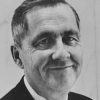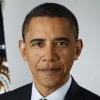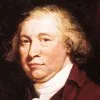If a nation expects to be ignorant and free, in a state of civilization, it expects what never was and never will be. The functionaries of every government have propensities to command at will the liberty and property of their constituents. There is no safe deposit for these but with the people themselves; nor can they be safe with them without information. Where the press is free, and every man able to read, all is safe.
Thomas Jefferson (1743-1826) American political philosopher, polymath, statesman, US President (1801-09)
Letter (1816-01-06) to Charles Yancey
(Source)
The original, non-orthographic version of this reads:if a nation expects to be ignorant & free, in a state of civilisation, it expects what never was & never will be. the functionaries of every government have propensities to command at will the liberty & property of their constituents. there is no safe deposit for these but with the people themselves; nor can they be safe with them without information. where the press is free and every man able to read, all is safe.
There is a spurious variant on part of this quotation that reads:If a nation expects to be ignorant and free, in a state of civilization, it expects what never was and never will be. If we are to guard against ignorance and remain free, it is the responsibility of every American to be informed.
While the first sentence (as above) is legitimate, the second is not. It appears to be a paraphrase of Jefferson used by Ronald Reagan in 1981.
Quotations about:
citizenry
Note not all quotations have been tagged, so Search may find additional quotes on this topic.
The trouble is that democracy works only when a good majority of citizens are willing to give thought and time and effort to their government.
Fletcher Knebel (1911-1993) American author
Seven Days in May, “Tuesday Afternoon” [Lyman] (1962) [with Charles W. Bailey II]
(Source)
Rulers are no more than attorneys, agents and trustees for the people; and if the cause, the interest and trust is insidiously betray’d, or wantonly trifled away, the people have a right to revoke the authority, that they themselves have deputed, and to constitute abler and better agents, attorneys and trustees.
John Adams (1735-1826) American lawyer, Founding Father, statesman, US President (1797-1801)
Essay (1765-09-30), “A Dissertation on the Canon and the Feudal Law,” No. 3, Boston Gazette
(Source)
The essence of our American tradition of State and local governments is the belief expressed by Thomas Jefferson that Government is best which is closest to the people. Yet that belief is betrayed by those State and local officials who engage in denying the right of citizens to vote. Their actions serve only to assure that their State governments and local governments shall be remote from the people, least representative of the people’s will and least responsive to the people’s wishes.
Lyndon B. Johnson (1908-1973) American politician, educator, US President (1963-69)
Letter (1965-03-15), “Special Message to the Congress on the Right to Vote”
(Source)
Our democracy is not the buildings, not the monuments. It’s you being willing to work to make things better and being willing to listen to each other and argue with each other and come together and knock on doors and make phone calls and treat people with respect.
Barack Obama (b. 1961) American politician, US President (2009-2017)
Staff Farewell, Joint Base Andrews, Maryland (20 Jan 2017)
(Source)
In the great fulfillment we must have a citizenship less concerned about what the government can do for it and more anxious about what it can do for the nation.
The people — the people — are the rightful masters of both Congresses, and courts — not to overthrow the Constitution, but to overthrow the men who pervert it.
Abraham Lincoln (1809-1865) American lawyer, politician, US President (1861-65)
Speech (1859-09-16), Columbus, Ohio
(Source)
On preventing the spread of slavery to new states and territories, and preventing the resumption of the African slave trade.
The speech, sponsored by the Ohio Republican Central Committee, was also given the next day in Dayton and Cincinnati, Ohio. It may have been also given at Cooper Union, New York City (1860-02-27).
Variant:The people of these United States are the rightful masters of both Congresses and courts, not to overthrow the Constitution, but to overthrow the men who pervert the Constitution.
Discussion and further information around this quotation:
- Abraham Lincoln papers: Series 1. General Correspondence. 1833-1916: Abraham Lincoln, [September 16-17, 1859] (Notes for Speech in Kansas and Ohio) | Library of Congress
- "The people of these United States are the rightful masters of both congresses and courts, not to over-throw the Constitution, but to over-throw the men who pervert that Constitution" / E.B. & E.C. Kellogg, 245 Main Street, Hartford, Conn. | Library of Congress
- Did Lincoln Say 'We the People Are the Rightful Masters of Both Congress and the Courts'? | Snopes.com
Let us not be mistaken: the best government in the world, the best parliament and the best president, cannot achieve much on their own. And it would be wrong to expect a general remedy from them alone. Freedom and democracy include participation and therefore responsibility from us all.
[The people] have a right, an indisputable, unalienable, indefeasible, divine right to that most dreaded and envied kind of knowledge, I mean, of the characters and conduct of their rulers.
John Adams (1735-1826) American lawyer, Founding Father, statesman, US President (1797-1801)
Essay (1765-09-30), “A Dissertation on the Canon and the Feudal Law,” No. 3, Boston Gazette
(Source)
A bill of rights is what the people are entitled to against every government on earth, general or particular, and what no just government should refuse, or rest on inference.
Thomas Jefferson (1743-1826) American political philosopher, polymath, statesman, US President (1801-09)
Letter (1787-12-20) to James Madison
(Source)
Let them take arms. The remedy is to set them right as to facts, pardon and pacify them. What signify a few lives lost in a century or two? The tree of liberty must be refreshed from time to time with the blood of patriots and tyrants. It is it’s natural manure.
Thomas Jefferson (1743-1826) American political philosopher, polymath, statesman, US President (1801-09)
Letter (1787-11-13) to William Stephens Smith
(Source)
For in a republic, who is “the Country”? Is it the Government which is for the moment in the saddle? Why, the Government is merely a servant — merely a temporary servant; it cannot be its prerogative to determine what is right and what is wrong, and decide who is a patriot and who isn’t. Its function is to obey orders, not originate them. Who, then, is “the country?” Is it the newspaper? Is it the pulpit? Is it the school-superintendent? Why, these are mere parts of the country, not the whole of it; they have not command, they have only their little share in the command. They are but one in the thousand; it is in the thousand that command is lodged; they must determine what is right and what is wrong; they must decide who is a patriot and who isn’t.
In a virtuous community men of sense and principle will always be placed at the head of affairs. In a declining state of public morals men will be so blinded to their true interests as to put the incapable and unworthy at the helm. It is therefore vain to complain of the follies or crimes of a government. We must lay the hands on our own hearts and say, Here is the sin that makes the public sin.
I am not one of those who think that the people are never in the wrong. They have been so, frequently and outrageously, both in other countries and in this. But I do say, that in all disputes between them and their rulers, the presumption is at least upon a par in favour of the people.
Widespread intellectual and moral docility may be convenient for leaders in the short term, but it is suicidal for nations in the long term. One of the criteria for national leadership should therefore be a talent for understanding, encouraging, and making constructive use of vigorous criticism.
By the frame of the Government under which we live this same people have wisely given their public servants but little power for mischief, and have with equal wisdom provided for the return of that little to their own hands at very short intervals. While the people retain their virtue and vigilance no Administration by any extreme of wickedness or folly can very seriously injure the Government in the short space of four years.
Abraham Lincoln (1809-1865) American lawyer, politician, US President (1861-65)
Speech (1861-03-04), Inaugural Address, Washington, D. C.
(Source)
But the future lies with those wise political leaders who realize that the great public is interested more in Government than in politics.
Franklin Delano Roosevelt (1882-1945) American lawyer, politician, statesman, US President (1933-1945)
Speech (1940-01-08), Jackson Day Dinner, Mayflower Hotel, Washington, D. C.
(Source)
Quoted by Ronald Reagan, State of the Union (1983-01-25), though he appeared to misattribute the phrase to Roosevelt's second State of the Union message.
All politics is based on the indifference of the majority.
James "Scotty" Reston (1909-1995) Scottish-American journalist and editor
“New York: Rockefeller Comes Out of His Trance,” New York Times (12 Jun 1968)
(Source)
This is cited in multiple places to this 1968 op-ed, to which I don't have access. Reston also used the phrase in this 1972 op-ed.
What is wanted is men, not of policy, but of probity, — who recognize a higher law than the Constitution, or the decision of the majority. The fate of the country does not depend on how you vote at the polls, — the worst man is as strong as the best at that game; it does not depend on what kind of paper you drop into the ballot-box once a year, but on what kind of man you drop from your chamber into the street every morning.
Henry David Thoreau (1817-1862) American philosopher and writer
Speech (1854-07-04), “Slavery in Massachusetts,” Anti-Slavery Celebration, Framingham, Massachusetts
(Source)
After the conviction in Boston of Anthony Burns, under the Fugitive Slave Act of 1850. This led to large protests and an abolitionist riot at the Boston Courthouse, requiring Federal troops and state militia to ensure his transport to a ship sailing to Virginia.


















